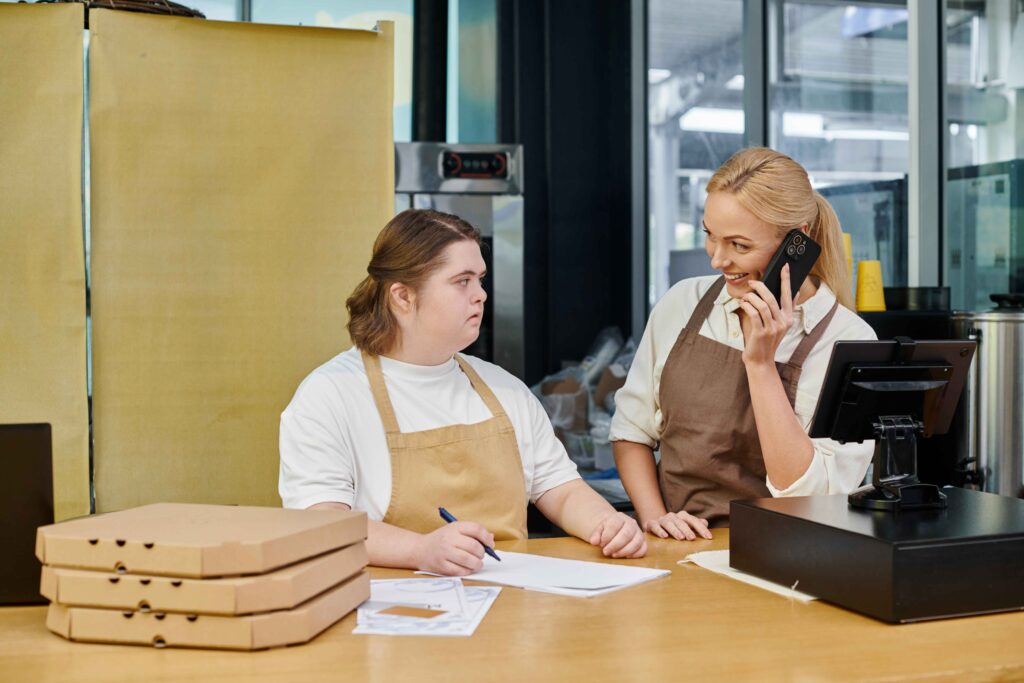Introduction
How to Reduce Costs in the Restaurant Business: The restaurant industry has always been fiercely competitive, but recent years have pushed many operators to the brink. Escalating food prices, rising labor costs, and inflationary pressures have drastically narrowed profit margins. Add to this the unpredictable nature of consumer demand and increasing utility expenses, and it’s clear: running a profitable restaurant today is more challenging than ever.
In this tough climate, understanding how to reduce cost in restaurant business isn’t just beneficial, it’s essential for survival. Effective cost management goes beyond trimming budgets. It’s about strategic decision-making, backed by accurate accounting, smart operations, and tailored financial practices. This guide will walk you through actionable steps and best practices, including the importance of restaurant cost accounting, how outsourced accounting services can help, and why working with accountants for hospitality can be a game-changer.
Learn more about our Accounting Services!
The Financial Challenges Restaurants Face Today
The restaurant business faces tight margins and high volatility, making every dollar count. Among the most pressing financial burdens are food costs, which have surged due to global supply chain issues and inflation. Ingredients that were once affordable are now premium-priced, and waste from spoilage or poor forecasting only makes it worse.
Labor is another massive cost center. From wages and benefits to training and turnover, staffing a restaurant can drain resources if not managed carefully. Energy and utility expenses also add up, particularly in kitchens that run heavy equipment for long hours. Rent, insurance, and marketing further pile on, leaving little room for error in financial planning.
What makes proactive cost control so vital is that restaurants don’t typically have the luxury of high margins. Financial stability depends on scaling with precision only possible if owners maintain a clear picture of where their money is going and how to optimize spending.

Cost Accounting for Restaurants: What It Is and Why It Matters
Restaurant cost accounting is a specialized branch of accounting that helps track, manage, and analyze every expense in your operation. Unlike general accounting, which focuses on revenue and taxation, cost accounting breaks down all costs to understand how resources are being used and where efficiencies can be found.
At its core are key principles like monitoring cost of goods sold (COGS), allocating overhead costs (such as rent and utilities), and analyzing gross profit margins. This level of detail allows operators to make informed decisions such as adjusting menu prices, switching vendors, or changing staffing levels.
Restaurants typically track expenses across categories like food and beverage costs, labor, rent, marketing, and waste. Without structured accounting, it’s easy to overlook small inefficiencies that snowball over time. That’s where accurate bookkeeping services become critical. They ensure that financial records are updated regularly and categorized correctly, providing the foundation for meaningful cost analysis.

Practical Ways to Reduce Costs in Your Restaurant
There are many effective ways to reduce costs in a restaurant without sacrificing quality or customer experience. One of the most impactful strategies is menu engineering. By analyzing item-level sales data and profit margins, you can promote dishes that are both popular and profitable, while phasing out low-margin or low-performing items. Adjusting portion sizes or modifying ingredients for high-cost dishes can also lead to significant savings over time.
Inventory management is another area with high potential for cost reduction. Implementing daily inventory checks helps reduce waste, detect theft, and identify purchasing inefficiencies. Setting par levels ensures you never over-order, which is particularly important for perishable goods. Using technology such as integrated point-of-sale (POS) and inventory systems you can achieve real-time visibility which allows for smarter purchasing decisions.
On the labor front, staff scheduling optimization can improve productivity while lowering costs. Matching labor to sales forecasts—using data from historical patterns—prevents overstaffing during slow periods or understaffing during peak hours. Cross-training employees to handle multiple roles also adds flexibility and reduces the need for excess headcount.

Energy consumption is often overlooked but can make a dent in your operating costs. Restaurants can improve energy efficiency by upgrading to energy-star-rated appliances, installing motion-sensor lighting in low-traffic areas, and maintaining HVAC and refrigeration systems regularly. Small changes in energy usage can translate into significant savings across multiple locations or over the course of a year.
Finally, one of the smartest financial decisions a restaurant can make is outsourcing back-office functions like accounting. Rather than hiring a full-time in-house accountant, outsourcing to a firm that specializes in hospitality accountancy allows you to access expert financial advice, advanced tools, and scalable support.
How Bookkeeping and Accounting Services Help Cut Costs
Outsourcing bookkeeping and accounting services does more than just offload administrative work, it enhances financial clarity and cuts operational costs. By working with professionals who understand your industry, you’re more likely to catch discrepancies early, avoid penalties, and generate reports that inform smarter business strategies.
The key benefits of outsourced accounting services include reduced payroll overhead, improved accuracy, and timely financial reporting. These firms often utilize cloud-based systems that offer real-time access to cash flow reports, P&Ls, and forecasting dashboards. That means you’re not waiting for month-end close to make critical decisions.
When choosing bookkeeping services tailored for the hospitality industry, look for providers with deep restaurant experience, software compatibility (especially POS integrations), and the ability to scale with your business. Reliability and responsiveness are crucial to avoid reporting delays that may incur fines or compliance penalties
Working with Specialists in Hospitality & Restaurant Accounting
Not all accounting firms are created equal. Hospitality & restaurant accounting professionals bring industry-specific knowledge that can significantly impact your financial strategy. They’re well-versed in seasonal trends, COGS fluctuations, vendor negotiations, and tip compliance – all areas where general accountants might miss the nuances. Paperchase’s hospitality experts know the industry and can give money saving assistance and support to all segments of the business.
For example, hospitality accountants understand how to align reporting with POS systems, track food waste, and navigate the complexities of tax laws related to staff gratuities and tip pooling. Their familiarity with payroll issues unique to restaurants, such as shift differentials or shared tips, ensures accurate and compliant reporting.

Investing in accountants for hospitality may seem like an added expense, but the long-term cost benefits can be substantial. These experts help identify overlooked deductions, streamline vendor payments, and create financial forecasts that guide expansion or new product launches. In essence, they transform accounting from a reactive task to a proactive growth tool. Over time, this expertise translates into better cash flow management, stronger vendor relationships, and healthier profit margins.
NYC Hospitality Alliance: Industry Statistics
Conclusion
Reducing costs in the restaurant business isn’t about slashing budgets. By embracing cost accounting for restaurants, improving operational efficiency, and leveraging the power of outsourced accounting services, restaurant owners can reclaim profitability without compromising quality.
Whether you run a single location or a growing chain, financial clarity is your strongest asset. Accurate bookkeeping, expert support from accountants for hospitality, and a proactive approach to cost control can make the difference between surviving and thriving in this competitive industry. Now is the time to evaluate your cost structure and accounting systems. The right changes today could lead to lasting success tomorrow.
Frequently Asked Questions
What’s the most effective way to reduce cost in a restaurant business?
A combination of cost accounting, inventory control, labor optimization, and strategic menu design offers the most sustainable path to reducing costs.
What is cost accounting for restaurants, and how does it help?
Cost accounting involves tracking every expense category to understand spending patterns, identify inefficiencies, and inform better pricing and operational decisions.
How can bookkeeping services save restaurants money?
Bookkeepers keep your financials accurate and up to date, helping you avoid penalties, detect errors early, and gain insights that reduce unnecessary expenses.
Why are outsourced accounting services better for small or mid-size restaurants?
Outsourcing eliminates the need for full-time staff, reduces payroll burden, and provides access to advanced tools and industry expertise at a fraction of the cost.
How do hospitality & restaurant accounting firms differ from general accounting providers?
They specialize in industry-specific challenges, such as POS integration, tip reporting, and COGS tracking, offering more relevant insights and financial strategies.




















